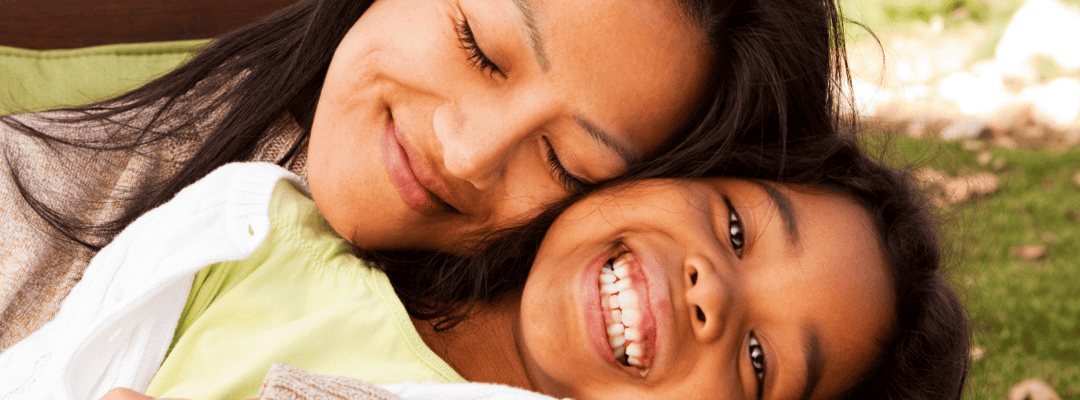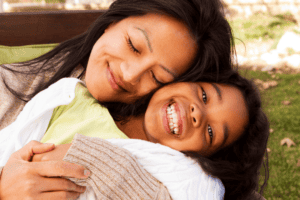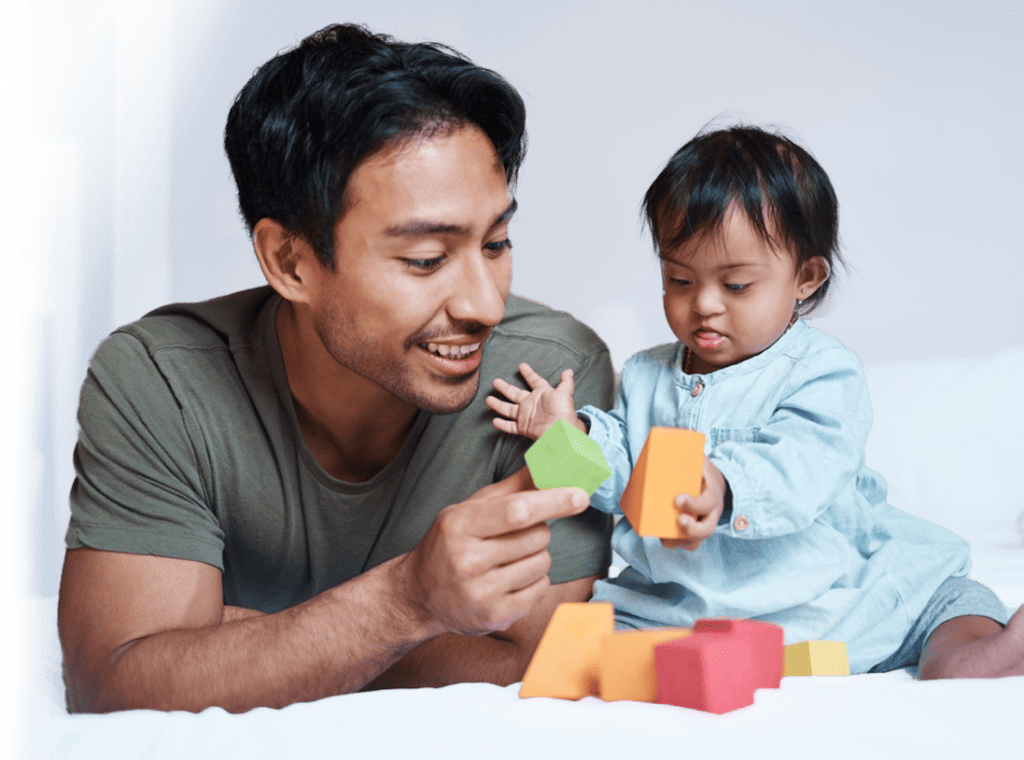
November is National Adoption Month and my daughter, Lucy, and I want to talk about some of the myths we have heard about adopting children with special needs.
Myth #1:
I can’t parent a child with special needs. I wouldn’t know what to do.
The good news and the bad news is: welcome to parenthood, the biggest learning curve most of us will ever be on. When I became a parent for the second time, I thought I knew all about being a parent (stop laughing!). It turns out that I could pack a diaper bag in 60 seconds while wearing two toddlers, but the rest of it was amateur hour all over again.
Lucy’s advice: Go meet people who have that same disability as your child. Learn about what they need and think about whether you think you can do that for them. Ask them what they wish their parents knew when they were growing up.
If you don’t know what kinds of disabilities or special needs your child has, spend some time learning about disability rights (again, start with adults with disabilities) and learn what it means to be a great parent advocate. Learn about what kinds of supports your child might need, what services are available, and what benefits your child might be eligible for.
Then… take a deep breath. Give yourself the space for everything you’ve learned to sink in. Adopting a child with special needs is not for everyone–but maybe it is for you.
Myth #2:
I’m ready to parent a child with special needs.
Remember what I said about parenthood in myth #1? If you think you’re prepared you probably are not, really. But that’s okay. We learn it as we go. If you don’t share the child’s disability, make sure you talk to people who do so you can learn from the experts.
Lucy says: Make sure you have as much information as you can get before you adopt your kid, but you can’t really know everything now. When your child gets older they will probably tell you more about what they need. Like, maybe they need more breaks or therapy or more time with other people who are like them.
(Here’s a bit about what Lucy has taught me over the years).
Myth #3:
If I don’t feel prepared to parent a special needs child, I should adopt a newborn.
It turns out that humans are pretty complicated. Some of us are born with disabilities that are obvious. Sometimes we’re born with disabilities that show up later. Some of us become disabled because of accidents or illness. And adoption itself is a loss, and loss is trauma – even for infants. And trauma has real effects on our development.
In the United States, 1 in 5 people live with a disability. Chances are good that we all either have a disability or love someone who does. So what was that again about “special” needs?
There are no guarantees in parenthood, but we all get a chance to adapt.
Lucy wants you to know: if you have a child who is different from you, you get to learn all about a new culture and meet lots of new people who you wouldn’t have met otherwise. Don’t be afraid of it. It’s cool!
Myth #4:
People who adopt children with special needs are angels.
Lucy’s response: [Rolls her eyes at me. Reports sarcastically, “oh yes, you two are angels!”] Yes, you’re a great person, but you have to give your kid what they need. Sometimes parents make mistakes, like they don’t support their kids. Or they yell at them a lot. You’re not a good person just because you adopted someone. That’s silly.
Besides, look what I got in the bargain: my kids. I get to be their parent. It’s insulting to them to imply that I did this to be a good person.
Myth #5:
Love is enough.
Nope. It’s not. All children need more than love. And children with special needs require extra advocacy, extra patience, extra time, extra energy. Some also need extra doctor’s appointments, speech therapy, adaptive equipment, IEPs, or a house without stairs.
Lucy says: Love is something you need but it’s not enough all the time. Kids with special needs also need comfort, and services, and for you to take them to see their friends, and discipline (but not too much!), and support from their parents. Everyone’s definition of love is different.
Also, ice cream. We need ice cream.
A few great resources if you are considering adopting a child with special needs:
Support for parents who adopt from foster care
checklist of things to ask yourself if you’re thinking about adopting a child with special needs: checklist of things to ask yourself if you’re thinking about adopting a child with special needs.
National Down Syndrome Adoption Network




